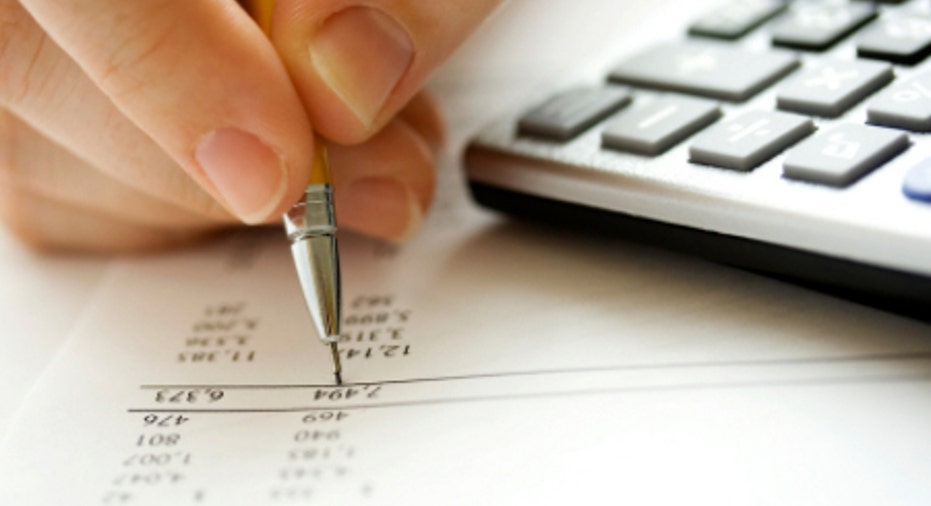How Budgets Fail (and How to Make Yours Succeed)

Dear New Frugal You,
Why do budgets always fail? At least mine do. I started the new year wanting to get my finances in order. Most months my credit card balance goes up a little more. I thought that a budget would help me control spending. Not!! My spending is still the same plus it takes hours each week dealing with all these figures that depress me. Help!
- Amara
Dear Amara,
You're not alone. A lot of people start a budget only to find that it doesn't seem to work for them. They give up frustrated and convinced that they can't control their finances. That's a shame -- because it's not true. Almost everyone can take control of their spending.
Budgets generally fail for a few basic reasons. Either the budget was poorly designed, unrealistic or a poor match for the person using it, or the person using it gave up too soon. Let's look at each reason.
The first failure is due to poorly designed budgets. That often happens because people misunderstand what a budget is supposed to do. The purpose of a budget isn't to keep you from spending money. The purpose of a budget is to be a tool to help you manage your money by identifying where your spending is different from what you planned.
The trap that too many budgets fall into is that they collect and report much more data than the average person is willing to collect or could ever use. You don't need to know where every penny is spent and what it was spent on.
For instance, in most situations it doesn't make any difference whether you bought groceries at the supermarket, farmers market or organic specialty shop. So your budget really needs to track only that you spent $X on groceries.
You don't want to take more time to collect and input data. Too many detailed reports can make it difficult to find the numbers that are really important, causing some of the frustration that you're feeling, Amara.
Budgets can also fail because they're unrealistic. The temptation is to take your income and juggle the expense numbers so that they don't exceed your income -- often without paying attention to what you've been spending in the past on each category. The budget looks great on paper, but falls apart in the real world.
A good budget must take into account what your current spending patterns are. If your current car payments, insurance and gas bills total $1,400 each month, there's no sense in budgeting significantly less than that unless you plan on selling your car.
Seeing that your income and expenses don't line up may force you to face some uncomfortable truths in assembling your budget. If you have too much committed to relatively fixed expenses such as car and student loans, mortgages and credit card minimums, it can be very hard to keep expenses within your income level.
A good budget will also take into consideration your temperament. Some people are into details and don't mind taking a few minutes each day to enter their daily income and expenses into budget software. But most of us do. We draw the line at spending 20 to 30 minutes each week on a budget. So don't let good intentions overload you. If you're not into detail, pick a method that's easy to use.
We don't have the space to review the different software, websites and apps available for budgets. But there are some that can even link up to your accounts and require almost no data input after the accounts are set up. So not wanting to enter data is no excuse.
The final reason budgets fail is that people quit on them too soon. The common pattern is that people spend more than they planned. So they decide to try harder next month but don't really have a plan in mind. After "trying harder" (and failing) for a few months, they give up.
The trick isn't in the trying -- it's in working smarter.
Let's use our grocery example. The first month you find you're spending more than expected on groceries. So the second month you track your expenses by store. You find that you don't spend much at the farmers market or organic markets, but you do ring up big bills at the supermarket.
The third month you watch what you buy at the supermarket more carefully. At the end of the month you take the time to categorize the supermarket bills. You notice that you spend a lot on cleaning supplies, paper products and prepared foods.
So you begin to investigate how to make your own cleaning supplies, start using cloth towels in the kitchen and replace some of the prepared foods. The result? Over a few months you get the grocery category down to an acceptable level.
There's one final problem that some people face when they do a budget: They get intimidated by it or resent the whole idea of it altogether. There's no need for that. Almost everyone can understand basic personal finance ideas. There's no reason to resent a tool that can help you take control of your future.
Amara, don't get frustrated with your budget. As with any other tool, you need to learn how to use it properly. Often that takes some time and effort. But it's worth it. A budget can make a huge difference in your finances for your entire life.
See related: Tips to make sure your budget succeeds, Your first budget in 3 easy steps



















